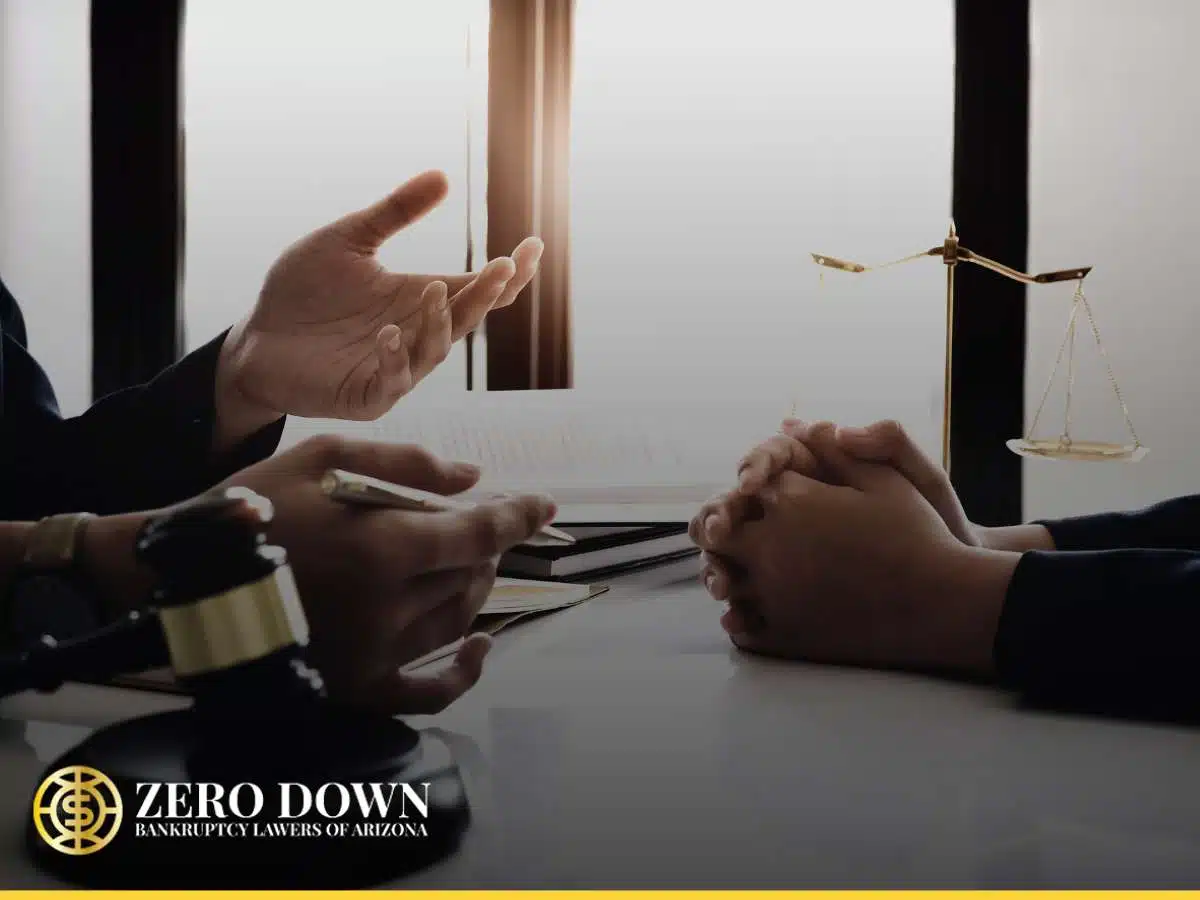Bankruptcy is not meant to be a simple and convenient process that a person can use whenever they don’t feel like paying off their credit card. It also isn’t a mechanism to help someone with financial means erase debts while retaining expensive assets like second homes and luxury vehicles. Bankruptcy is meant as a last resort for someone who is struggling with debts. The process helps make discharging debts fairer for everyone involved, including creditors. When doing initial research into the bankruptcy process, it might feel like trying to drink from a firehose- there is substantial information to learn quickly before your creditors start to act. Read on to learn our top tips for potential bankruptcy debtors in the Phoenix area- for your free consultation with one of our experienced debt relief lawyers, call 602-609-7000.
Determine Potential Emergency Deadlines.
Bankruptcy can often feel like an emergency, but certain circumstances may require a debtor to utilize an emergency bankruptcy filing, also known as a skeleton bankruptcy filing. Here, a debtor can submit the “bare bones” of their bankruptcy petition to activate the automatic stay and gain protection from creditors. The debtor will have 2 weeks to submit their full bankruptcy petition. Determining that you have an emergency case will increase how much time and effort you need to spend on it in the immediate future. Some examples of emergency deadline circumstances include:
- A creditor has informed the debtor that they plan to file a lawsuit to collect their debt
- The debtor has fallen behind on car payments and their vehicle could be repossessed at any moment
- The debtor has received notice of a home foreclosure
- The debtor’s landlord has filed an eviction lawsuit against them that has not yet reached the writ of possession stage
- The debtor has received notice of a wage garnishment that is about to begin
Start Creating An Inventory Of Your Assets Now.
If you file for bankruptcy, you will need to provide the court with an inventory, or schedule, of your assets, which includes both real and personal property. If you want to retain these assets, you will need to apply exemptions to protect them from seizure by the bankruptcy trustee. If you know that bankruptcy is on the horizon, there is no reason that you shouldn’t start preparing your inventory of assets in advance. This will give you more time to carefully apply your exemptions and focus on the rest of your petition.
Be Aware Of How Bankruptcy Could Impact Your Taxes.
Many people file for bankruptcy without realizing that it will likely mean that the trustee takes their tax refund. If you are expecting a substantial refund and don’t have emergency circumstances pressuring you to file right away, it might be strategic to time your filing accordingly. If possible, wait to file after you have received your tax refund and spent it on reasonable purchases. That way, you can maximize your financial benefit from filing for bankruptcy. Contact a bankruptcy attorney for a consultation if you have additional questions about filing for bankruptcy in Phoenix could affect your taxes.
Watch Your Credit Card Spending.
It can be a huge relief to discharge credit card debt with bankruptcy. However, there are limitations to credit card debt discharge in bankruptcy. Without them, it would create an opportunity for people to open up as many credit cards as possible, max them out, and clear them in bankruptcy. This is considered fraud because the accounts would be opened without any intention to ever repay them. To avoid this kind of misuse, a debtor must not spend more than $800 on luxury purchases in the 90 days before bankruptcy. Additionally, the debtor should avoid cash advances totaling $1,100 or more in the 70 days before bankruptcy. If you exceed these limits, your creditors might bring an adversary proceeding against you. This could delay your case and result in the debts being excluded from your discharge.
Complete Your Credit Counseling Before An Emergency Arises.
Every bankruptcy debtor is required to complete two online credit counseling courses to discharge their debts in bankruptcy. The first should be completed before filing, and the second should be completed within 60 days of the 341 Meeting of Creditors. You can take your first course up to 180 days before your case is filed. Like most legal matters, it isn’t advisable to put any item off until the last minute, and bankruptcy credit counseling courses are no exception. You never know when you will have an internet outage, family emergency, etc., and not be able to complete your course. Give yourself plenty of time and save yourself the headache of rushing to complete your courses on a deadline.
Prepare Yourself To Rebuild Credit After Your Debt Has Been Discharged.
One reason that many people file for bankruptcy is to help improve their credit histories. Without accounts in the negative reporting to the credit bureaus each month, the debtor can take proactive steps to see even stronger increases in their credit score. Making timely payments on your open lines of credit is a great way to build credit, but you will lose all of your credit cards when you file for bankruptcy. You should receive new offers for credit cards in the mail after your case has been discharged. If you have a financed vehicle, your payments will not count towards your credit score in a positive way after bankruptcy, but your lender can still report late payments to the credit bureaus. Therefore, retaining a financed vehicle through bankruptcy can only decrease your post-discharge credit score. You may want to consider purchasing a new vehicle so payments can continue contributing to your credit score.
Check That Any Firms You Interview Offer Free Consultations.
If you want the confidence and security that experienced bankruptcy counsel can give during your case, you will need to go out and hire a law firm on your own behalf- the court does not appoint attorneys for debtors in bankruptcy matters. Your initial interview to make sure a bankruptcy attorney is the right fit for you is known as a “consultation.” Some firms will charge for initial consultations, while others will offer them free of charge. Starting your search with firms that offer free consultations can help you save funds during a time when your budget is probably tight.
See If You Qualify To File For Bankruptcy For Zero Dollars Down.
While it may be counterintuitive, filing for bankruptcy doesn’t come cheap. The filing fees are substantial and you may feel more comfortable proceeding with representation from a skilled bankruptcy lawyer. If you feel overwhelmed by the up-front costs of debt relief, the good news is that you may qualify to file for bankruptcy for Zero Dollars Down. Most of our clients are eligible to pay for their chapter 7 bankruptcy case in affordable, post-filing installments. Your payment plan lasts up to 12 months and has a 0% interest rate. If you are interested in seeing if you qualify for this payment option or have any other questions about filing for bankruptcy in Phoenix, Arizona, contact us or call 602-609-7000 for your free consultation.
Arizona Offices
Phoenix Location:
343 W Roosevelt Street, Suite #100
Phoenix, AZ 85003
Email: [email protected]
Phone: 602-609-7000
Mesa Location:
1731 West Baseline Rd., Suite 101
Mesa, AZ 85202
Email: [email protected]
Glendale Location:
20325 N 51st Avenue, Suite #134
Glendale, AZ 85308
Email: [email protected]
Tucson Location:
2 East Congress, Suite #900
Tucson, AZ 85701
Email: [email protected]










